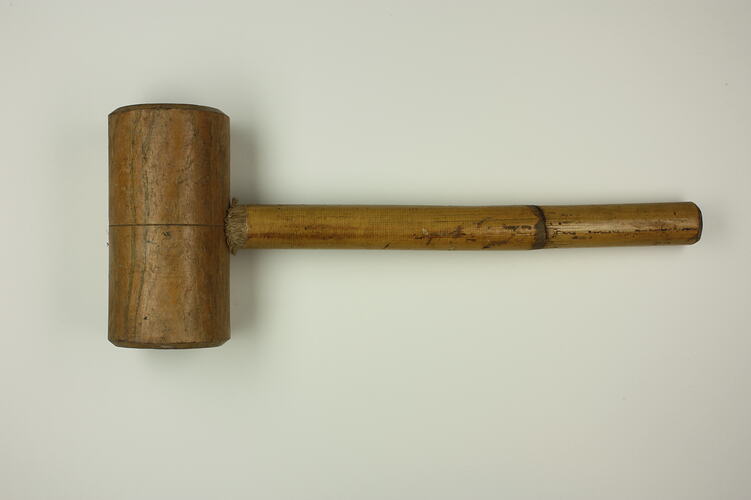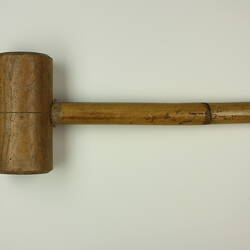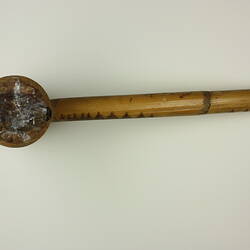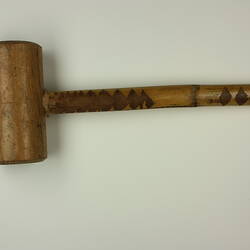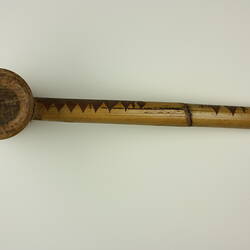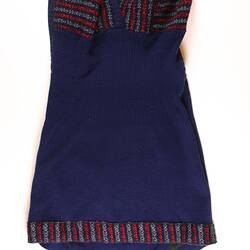Summary
Wooden mallet, one of a selection of hand tools that belonged to Angelo Azzola, who migrated from Italy to Melbourne in 1954, followed a year later by his wife Edda. The tools were given to Angelo by his father Gabriele Azzola, during a return visit to Italy in 1969. Edda recalled seeing the tools at Angelo's family home when she lived with the family after she and Angelo married in 1953. Gabriele gave the tools to his son, not as as sentimental heirlooms, but to be used for domestic home maintenance, and Angelo did use them for that purpose in his shed in Reservoir.
Edda Azzola, nee Pugnetti, was born in 1927 in Moggio Udinese in the Friuli region, northern Italy and the family moved to nearby Pontebba four years later. After their early schooling, Edda and her two sisters worked as knitting machinists from the family home, at which time they also produced their trousseaux which was stored by their mother in a chest. Edda married Angelo Azzola, a young man from her village. Searching for change, adventure and a better life, Edda persuaded her husband to migrate to Australia in 1954, she followed a year later in 1955, and her glory box came over later. The couple lived in Carlton and Fitzroy in inner Melbourne during the early years and Edda purchased an Italian knitting machine from another Italian migrant woman in Melbourne and worked as a textile factory outworker for about 20 years.
Physical Description
Wooden mallet in pale wood, with rounded handle and wooden cylindrical head.
Significance
The Edda Azzola knitting machine collection enables the exploration of issues relating to post World War II migration experiences, outworker working life, the post-war inner city Melbourne textile industry and dowry production. The collection, which includes a domestic knitting machine, tools, materials, textile samples, garments, a design notebook, photographs, an oral history interview, operator demonstration video and hand made glory box items, all combine to create a rich snapshot of working and migrant life, particularly significant with the large numbers of migrant women who were employed in and for textile factories around the city. The hand tools also represent home maintenance skills and activities. This story and collection is also enriched by its close connection to the Richard Charlupksi story, for whom Edda worked and which explores the 1950s-1970s wool fashion industry.
More Information
-
Collecting Areas
Migration & Cultural Diversity, Clothing & Textiles, Working Life & Trades
-
Acquisition Information
Donation from Mrs Edda Azzola, 12 Jun 2012
-
Past Owner & User
Mr Angelo Azzola, Reservoir, Greater Melbourne, Victoria, Australia
-
Past Owner
Mrs Edda Azzola, Reservoir, Greater Melbourne, Victoria, Australia
-
Classification
Migration, Settlement - first home & family, Tools & equipment
-
Category
-
Discipline
-
Type of item
-
Overall Dimensions
350 mm (Length), 135 mm (Width), 75 mm (Height)
-
Keywords
Hand Tools, Hammers, Tools, Italian Communities, Italian Immigration
